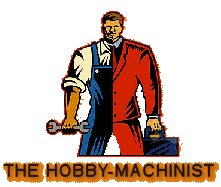- Joined
- Mar 26, 2018
- Messages
- 2,724
That's an important point, I've never used one of these things so I'm basing everything on watching a lot of youtubes and reading here on the forums. Gear changing looked like a PITA but maybe I'm overstating the problem. I'm back to thinking something along the lines of the 1228 makes more sense, and if I feel like it's necessary I can hack in an ELS at some later point.
I think if you need to change gears for every different feed rate or thread (as is on the smallest lathes), it will become annoying quickly. I bet this is where the ELS became popular with hobbyists. With a Norton style quick change gearbox, you get all the inch threads and feeds you need without changing any gears. Only when you need a metric thread or strange half size inch thread do you need to change out 2 gears. I do a mix of metric and imperial work and I still only need to change gears a dozen times a year.


